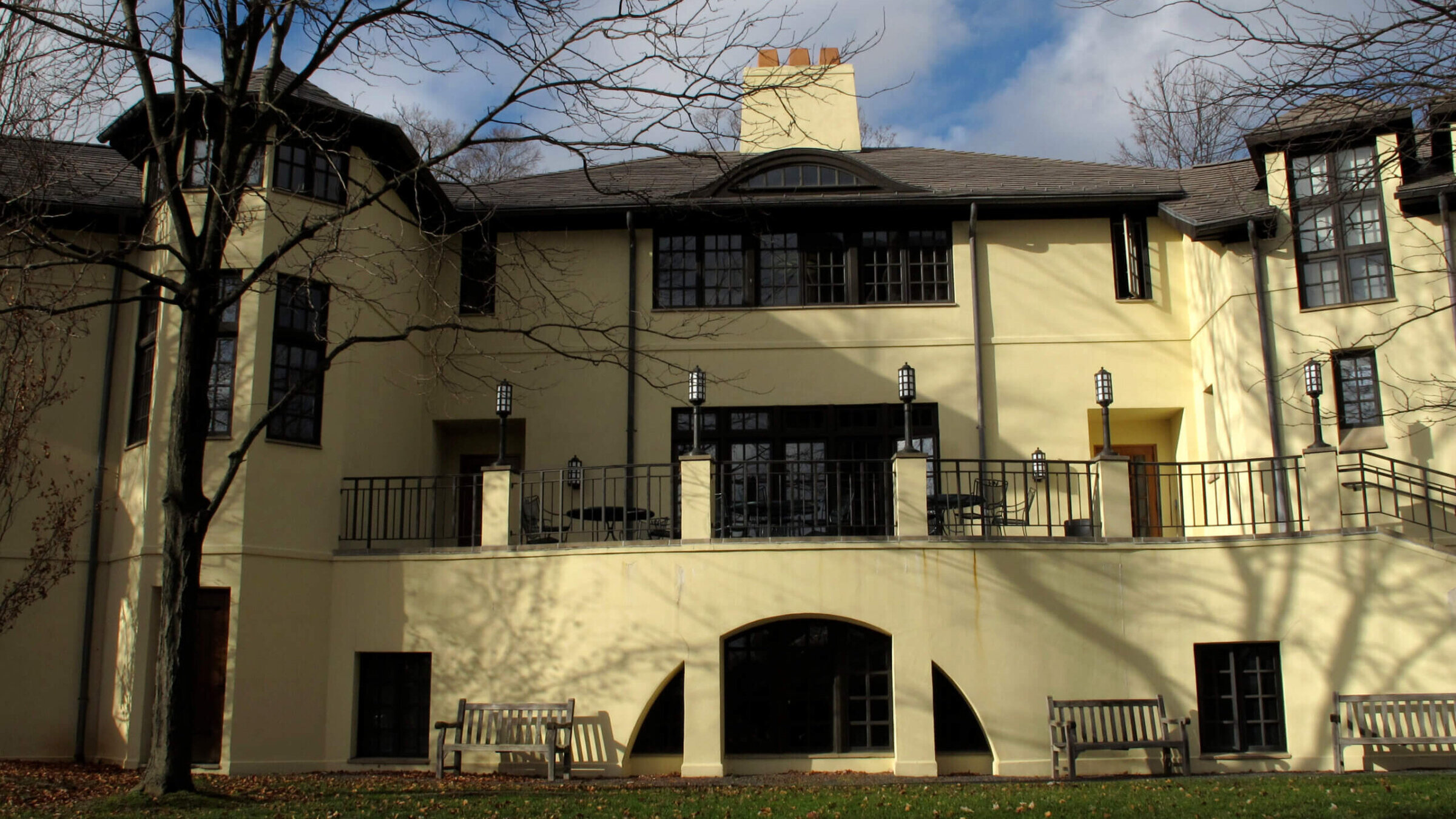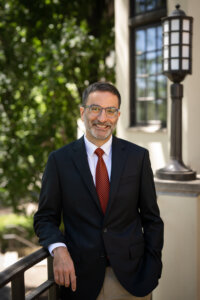I’m a rabbi at Princeton. Our campus is not a ‘hotbed of antisemitism’
Check with college students, not social media

View of the Center for Jewish Life / Hillel on the campus of Princeton University, Princeton, New Jersey, November 29, 2011. Photo by Oliver Morris/Getty Images
I am sometimes asked what it’s like to serve as a rabbi and Hillel director on an Ivy League campus that is a “hotbed of antisemitism.”
It’s an important question, to be sure. But it’s also a question that comes almost exclusively from people who are not at Princeton and sometimes have no connection to my community on campus. It’s a question that almost never comes from the students I actually serve.
These students live a life far removed from the headlines and social media posts that paint their school, the Ivy League and college campuses as unsafe places for Jewish students or supporters of Israel. A large number of them tell me they don’t feel hemmed in as a victim group. And, even with the challenges we face, they don’t live in a perpetual state of alarm over Jew-hatred.
Some students say the biggest challenge to campus Jewish life is not the rise in antisemitic incidents (which is absolutely real) or efforts to marginalize Israel (also real). It is the public animosity that those with different political views display towards one another, often turning important campus discussions into sound bites in broader cultural battles.
These observations — shared with me this past semester over a series of lunches at the Princeton Center for Jewish Life — should be a call to Jewish leaders to create spaces where students can have conversations across differences and honestly talk with each other instead of at each other. We should be a place where everyone is “safe enough” to encounter perspectives radically different from their own and where conversations happen around a family table before they happen through an Instagram feed.
When I was an undergraduate at Princeton 35 years ago, it was emerging as a campus where students could learn, grow and explore their Judaism in different ways as it overcame its long history of Jewish marginalization. An assortment of separate Jewish programs would soon come together as the Center for Jewish Life/Hillel in the spirit of Princeton’s mission “in the service of humanity.”
Last July, I returned to my alma mater after years as a congregational rabbi to become the executive director of the Center for Jewish Life.
I came back with warm memories of my transformative Jewish experience at Princeton, which had unexpectedly set me on the path toward the rabbinate.
But I’d also heard about — and soon experienced — increased incidents of antisemitism and anti-Israel activism on U.S. campuses. In the past 18 months, our Hillel has responded strongly to a student vote tied to the Boycott, Divestment and Sanctions (BDS) movement; attacks on an entrepreneurial-focused trip to Israel, and an academic department unapologetically inviting a Palestinian author whose rhetoric veers into hate speech. Our Princeton Jewish community has wrestled internally over hosting a far-right speaker and celebrating Israel at Friday night religious services and dinner.
These episodes frequently generate protests, counter-protests, and dueling opinion columns. Sometimes, they draw condemnation from off-campus actors who take to social media with messages like “Jewish students are at risk at Princeton University.”
They also prompted me to host my lunches with Jewish students so I could listen to their perspectives on antisemitism and understand how to support them best. These students came from a diverse array of backgrounds, political perspectives, levels of religious observance and connections to organized Jewish life.
Even among this diverse group, there was remarkable agreement on this most salient point: Being Jewish at Princeton is an overwhelmingly positive experience.
They feel supported and heard. They have ample opportunities to learn and grow through classes, affinity groups, activism, Israel programs, Shabbat and holiday celebrations, and — of course — eating.
The students offered a wide variety of viewpoints on hate on campus. But many simply don’t report experiencing antisemitism in their daily lives.
The recent episodes on campus angered many of them. But they were not surprised, scandalized or left feeling like they lived in a generalized environment of hatred.
These Gen Z students approach the world differently from their parents. They take conflicting perspectives in stride. They are comfortable learning and living with others who have radically different views. And they recognize that free speech and open dialogue can be ugly.
Several students told me they are most concerned by the dynamic that emerges around these episodes.
They are frustrated when those at both ends of the political spectrum amplify their concerns by attacking one another publicly — often while claiming to speak on behalf of a broader group instead of themselves. This turns a campus conversation into a cable news-ready battle. It misrepresents the positive lived experiences of other Jewish students.
Some see this dynamic as an overly politicized obsession within our community. It makes them want to engage less in organized Jewish life than when we focus on areas like community-building, learning, or Shabbat meals.
The solution, of course, is not to ignore very real episodes of antisemitism or fierce disagreements about Israel. We must continue to engage and stand up for our values. We must empower passionate students to share their views so they can effect change on campus and after they graduate.
The solution is to bring them together for face-to-face communication, no matter how uncomfortable, just as Jewish families have done around the Shabbat table for generations.
Moving forward, we must foster a culture and redesign space both at Princeton, and on college campuses nationally, so students can communicate civilly around difficult issues in the Jewish tradition of machloket leshem shamayim, or “disagreeing for the sake of heaven.”
Along with other Hillels, Princeton’s should be a center where students have conversations across differences; a center for myriad ideas, outlooks and individuals to emerge in one shared (if messy) narrative of Jewishness that looks inward even as we face outward.
This intentional approach will give me the best answer the next time I am asked what it’s like to serve as a rabbi at an Ivy League campus: It’s an honor to be at a place where we tackle hard questions together and where Jewish life thrives in the service of humanity.
To contact the author, email [email protected].
















